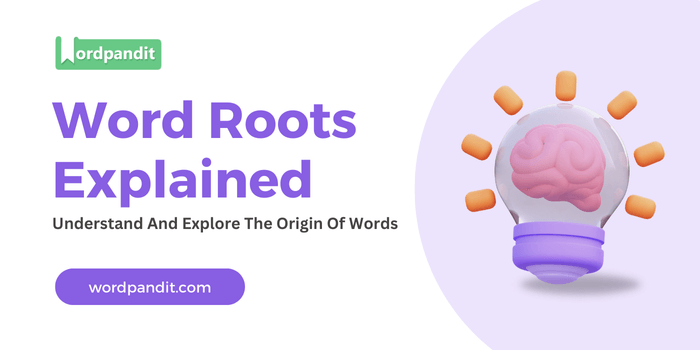Unlocking the Power of Communication: The Word Roots Loc and Loq
In the realm of language and communication, few roots are as quintessentially expressive as Loc/Loq, which stand for “to talk.” This exploration begins with words like ‘Loquacious’, a term that traces its lineage back to the Latin ‘loqui’, meaning ‘talk’. Thus, the words derived from Loq/Loc inherently revolve around the art of speaking and conversation, offering a rich tapestry of linguistic insights.
Example Sentences:
- The loquacious and eloquent politician was a favourite among journalists for interviews.
- His success as a manager was attributed partly to his eloquence and partly to his grandiloquence, which could persuade anyone.
Words Based on the Word Root LOQ/LOC
Commonly Used Words
- Elocution: The skill of clear and expressive speech.
- Eloquent: Fluent or persuasive in speaking.
- Soliloquy: A speech to oneself that is often used in drama.
Archaic Words
- Loquitur: An obsolete term indicating that a character in a play is about to speak.
- Somiloquence: An archaic term for speaking in one’s sleep.
Technical Words/Jargon
- Ventriloquism: The art of speaking in such a way that the voice appears to come from somewhere other than the speaker’s mouth.
- Circumlocution: The use of unnecessarily wordy and indirect language.
- Colloquium: An academic conference or seminar focused on a dialogue or discussion.
Related Word Roots
Verb- (Word, Speech)
- Verbose: Using more words than necessary.
- Verbatim: In exactly the same words as were originally used.
- Verbiage: Overabundance of words.
Dict- (Speak, Proclaim)
- Dictate: To say or read aloud something to be written down by someone.
- Dictum: A formal pronouncement from an authoritative source.
- Contradict: To assert the opposite of a statement made by someone.
This exploration of Loc/Loq and its associated terms delves into the essence of human communication. By categorizing these words and examining related roots, we deepen our appreciation for language’s power to convey thoughts, ideas, and emotions. These linguistic elements not only expand our vocabulary but also enhance our understanding of the intricate ways in which we connect with one another through speech.

